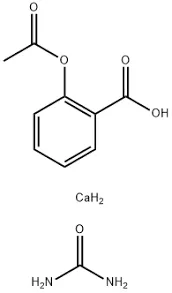- Afrikaans
- Albanian
- Amharic
- Arabic
- Armenian
- Azerbaijani
- Basque
- Belarusian
- Bengali
- Bosnian
- Bulgarian
- Catalan
- Cebuano
- Corsican
- Croatian
- Czech
- Danish
- Dutch
- English
- Esperanto
- Estonian
- Finnish
- French
- Frisian
- Galician
- Georgian
- German
- Greek
- Gujarati
- Haitian Creole
- hausa
- hawaiian
- Hebrew
- Hindi
- Miao
- Hungarian
- Icelandic
- igbo
- Indonesian
- irish
- Italian
- Japanese
- Javanese
- Kannada
- kazakh
- Khmer
- Rwandese
- Korean
- Kurdish
- Kyrgyz
- Lao
- Latin
- Latvian
- Lithuanian
- Luxembourgish
- Macedonian
- Malgashi
- Malay
- Malayalam
- Maltese
- Maori
- Marathi
- Mongolian
- Myanmar
- Nepali
- Norwegian
- Norwegian
- Occitan
- Pashto
- Persian
- Polish
- Portuguese
- Punjabi
- Romanian
- Russian
- Samoan
- Scottish Gaelic
- Serbian
- Sesotho
- Shona
- Sindhi
- Sinhala
- Slovak
- Slovenian
- Somali
- Spanish
- Sundanese
- Swahili
- Swedish
- Tagalog
- Tajik
- Tamil
- Tatar
- Telugu
- Thai
- Turkish
- Turkmen
- Ukrainian
- Urdu
- Uighur
- Uzbek
- Vietnamese
- Welsh
- Bantu
- Yiddish
- Yoruba
- Zulu
Dec . 04, 2024 10:23 Back to list
Investigating the Use of Colistin Sulfate Salt in Antibiotic Treatments and Resistance
Colistin Sulfate Salt An Overview of its Pharmacological Properties and Therapeutic Applications
Colistin sulfate salt, a polymyxin antibiotic, has garnered significant attention in the field of microbiology and pharmacology for its efficacy against multidrug-resistant Gram-negative bacteria. Originally discovered in the 1940s, colistin was utilized extensively until it was largely abandoned due to nephrotoxicity and the advent of newer antibiotics. However, with the rise of antibiotic resistance, colistin has made a comeback as a last-resort treatment option.
Pharmacological Properties
Colistin, also known as polymyxin E, is a cyclic polypeptide that exerts its antibacterial effects by disrupting the bacterial cell membrane. The molecule interacts with the phospholipids in the bacterial membrane, leading to increased permeability and cell death. This mechanism is particularly effective against Gram-negative bacteria, which are notorious for their robust outer membranes that confer resistance to many conventional antibiotics.
Colistin sulfate salt is administered intravenously, intramuscularly, or nebulized, depending on the clinical indication. The compound is poorly absorbed from the gastrointestinal tract, making parenteral administration the preferred route. Glycoprotein binding influences its distribution, while renal function plays a critical role in its elimination, necessitating dosage adjustments in patients with renal impairment.
Therapeutic Applications
The resurgence of colistin has been primarily driven by the increasing incidence of infections caused by multidrug-resistant organisms, such as Pseudomonas aeruginosa, Acinetobacter baumannii, and certain strains of Enterobacteriaceae. These organisms often display resistance to multiple antibiotic classes, rendering standard therapies ineffective. Colistin is now frequently employed in cases of severe infections when other treatment options have failed.
Colistin sulfate has been particularly valuable in the treatment of hospital-acquired pneumonia, sepsis, urinary tract infections, and infections associated with ventilator-associated pneumonia (VAP). Clinical studies have demonstrated that colistin can be effective in severely ill patients, often contributing to favorable clinical outcomes when used judiciously.
colistin sulfate salt

Side Effects and Considerations
Despite its therapeutic benefits, the use of colistin is not without risks. The most significant adverse effect associated with colistin therapy is nephrotoxicity, which can manifest as acute kidney injury (AKI). Monitoring renal function is imperative during treatment, and dose adjustments are required to minimize the likelihood of renal damage. Other possible side effects include neurotoxicity, which can lead to symptoms like dizziness, peripheral neuropathy, and, in rare cases, respiratory paralysis.
Given the potential for nephrotoxicity, clinicians must weigh the benefits of colistin therapy against the risks, particularly in populations at greater risk for kidney damage. In patients with pre-existing renal issues, careful monitoring and dosage modification are essential.
Resistance Concerns
As the reliance on colistin has increased, so too has the emergence of colistin-resistant bacterial strains. Resistance mechanisms include the modification of the bacterial membrane, which decreases colistin binding. Researchers are actively investigating these resistance patterns and developing strategies to circumvent emerging resistance, but the situation remains a significant concern. Continuous surveillance is required to monitor the emergence of resistant strains and to adapt treatment protocols accordingly.
Conclusion
Colistin sulfate salt serves as a critical option in the antibiotic arsenal against multidrug-resistant Gram-negative bacterial infections. While its efficacy in severe infections is well documented, the associated risks, particularly nephrotoxicity and emerging resistance, necessitate careful consideration by healthcare providers. As antibiotic resistance continues to pose a significant threat to global health, the role of colistin and similar agents will likely be pivotal in securing effective treatment options for severe bacterial infections. Ongoing research and vigilance are essential to balance the therapeutic benefits and the risks associated with colistin use in clinical practice.
-
Guide to Oxytetracycline Injection
NewsMar.27,2025
-
Guide to Colistin Sulphate
NewsMar.27,2025
-
Gentamicin Sulfate: Uses, Price, And Key Information
NewsMar.27,2025
-
Enrofloxacin Injection: Uses, Price, And Supplier Information
NewsMar.27,2025
-
Dexamethasone Sodium Phosphate Injection: Uses, Price, And Key Information
NewsMar.27,2025
-
Albendazole Tablet: Uses, Dosage, Cost, And Key Information
NewsMar.27,2025













